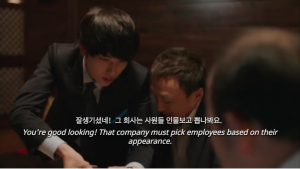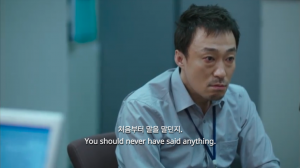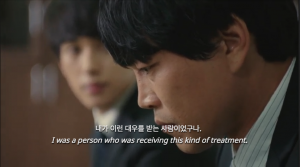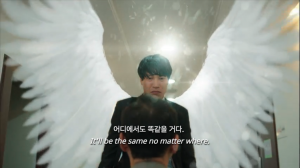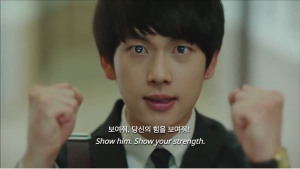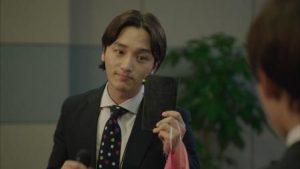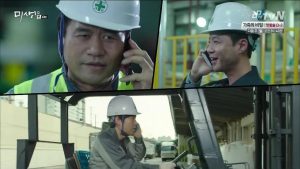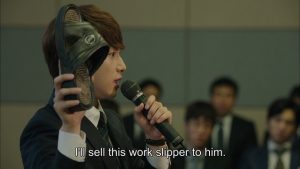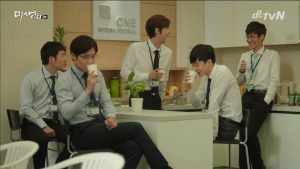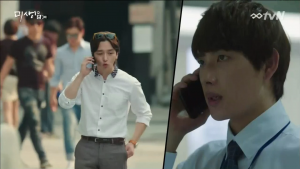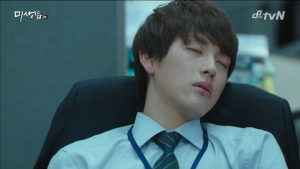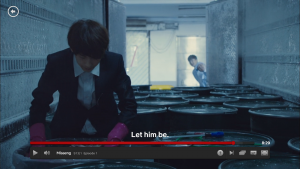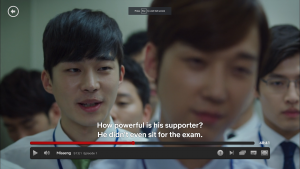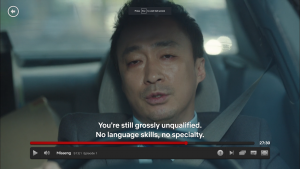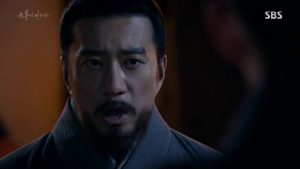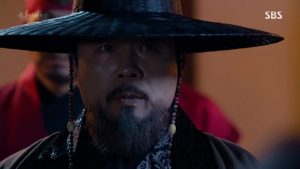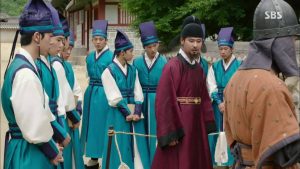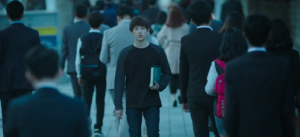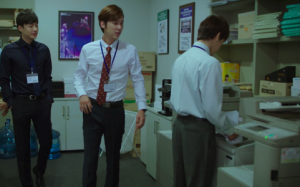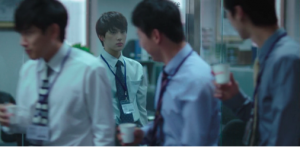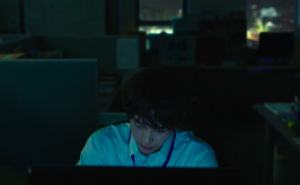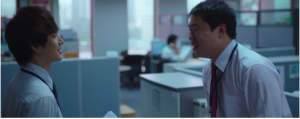Synopsis: Geu-rae is uneasy when Oh chooses a risky project at a team meeting. Young-yi is ordered to get approval for a project that Finance already rejected.
A deep and dark side of working in a Korean office has shown in Episode 7. A tough lesson has to be learned for all the interns in One International. Sometimes hard work is not enough. To make hard work become acknowledged and get along with higher levels are necessary in a workplace. In South Korean society, authority is traditionally concentrated at the higher levels in the hierarchy and authoritarian styles are generally accepted (Chen 2004). Limitations are set by the hierarchy of the company and how much power you have.
As a senior manager, when Sales Team 3 reports a risky project to him, Mr. Kim orders manager Mr. Oh to take his name off of the report. He tries to wipe his hands clean and doesn’t want to get in any trouble if the project fails. After Mr. Oh finds a new way to make the project more realistic, both Sales Team 2 and the executive director want to take Mr. Oh’s idea and grabs this project. Everyone realizes it is a good project and will get an outstanding achievement only after Sales Team 3 have made a huge effort on that. Not only the senior manager but also the executive director tries to take subordinates’ good work as their own. In the end, Mr. Oh and Dong-shik have to swallow their disappointment and sadness. According to Kim (2007, 23), compared with the Chinese and Japanese, Koreans are more likely to use a more compromising style in solving interpersonal conflict with their supervisors. Subordinates are less likely to contradict their superior in public.
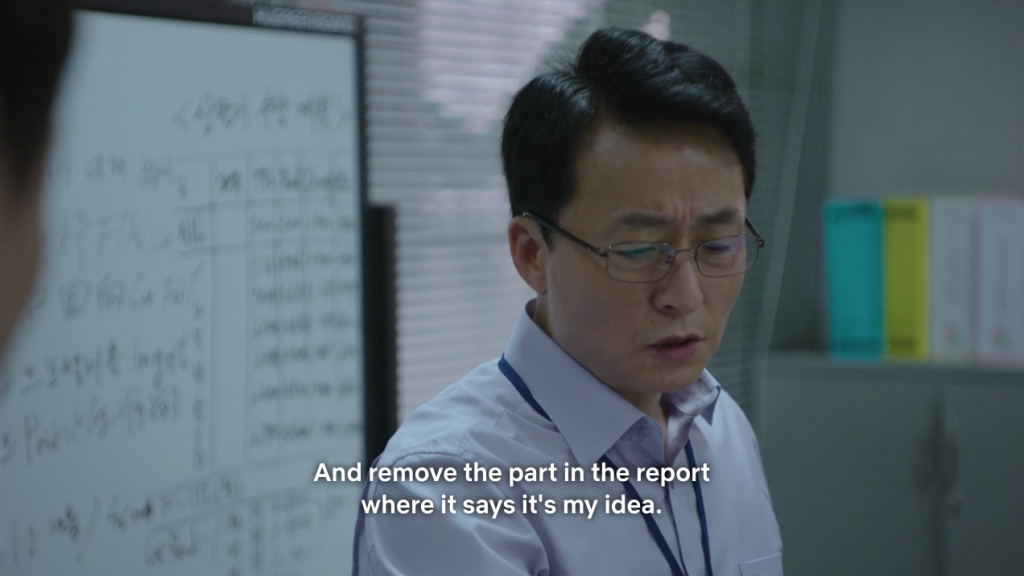
This deep side of hierarchy in the workplace has been revealed in this episode. South Korea is a country with high power distance and hierarchy (Lee 2012, 184). People or groups are ranked one above the other according to status, authority and job titles. Just like when we talk about the Korean government, it has different levels—president, prime minister and minister for each kind of subjects. Hierarchy helps a system to manage well and classifies things according to relative importance. However, this rigid hierarchy in Korea leads to unfairness and a lot of bullying at all levels. Pressure and obstructs brought by the superiors make for a much more challenging and ineffective working environment.
In Episode 7, Young-yi is ordered to get approval for a project that the Finance Team already rejected. From the show, we can see that Young-yi’s manage often yells at her, throws the papers in her face and gives her assignments which he even doesn’t how to deal with. After Young-yi finishes her project, her manage gets annoyed because she actually pulled this off. It is irritating to see her team has some misogynists who fear that she might actually be competent. Even though they are in the same group, the managers won’t help her and even try to make her life tough. This working environment is depressing and ineffective which made by these “high levels” who behave arrogant and jealous facing a capable newbie. Managers are fighting for their own achievement and fighting for write which one’s name on her report to get the credit rather than working together to achieve the goal.

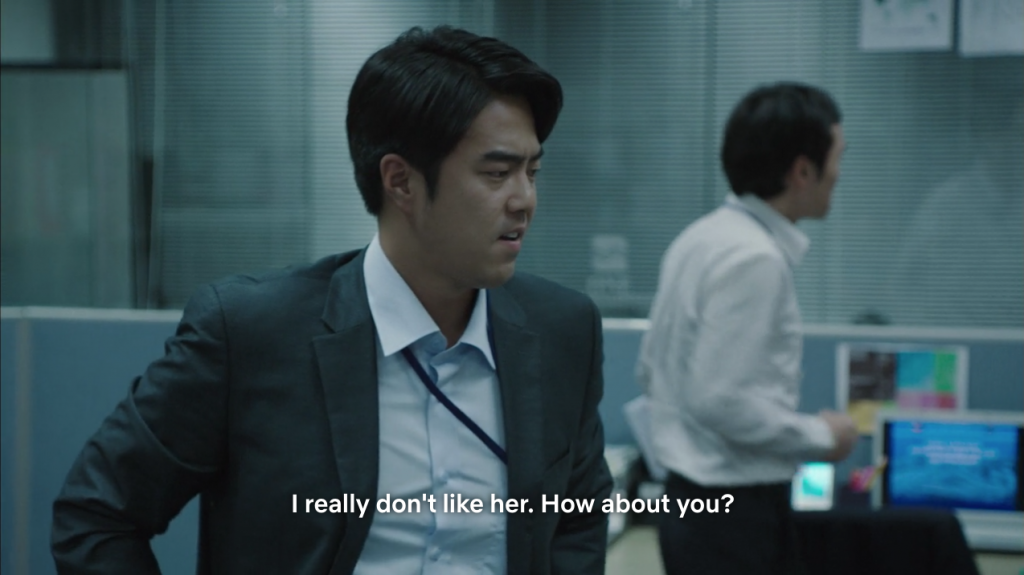
On the contrary, Mr. Oh acts so different with his rest coworkers. Mr. Oh tried to push a grade-B product rather than a safe grade-A one regardless of the risks. He believes B will bring in more profit even though the grade-A product is more stable. “A salary man has nothing besides paychecks and promotions.” Many of the Korean workers in the office would do anything to keep their jobs and be promoted. But that’s not the case for Mr. Oh. He approaches his salaryman life with passion, loyalty, and sincerity. These choices may give him a low achievement but he proceeds without hesitation. He thinks salesman as a romantic dream and put lots of care and effort into it. It is a wasted talent if upper-management doesn’t recognise its value and they even put more pressure on him. Viewers feel pathetic to see a company which is not with one heart.
One of the reasons why Korea attaches importance to hierarchy is due to their history. Confucianism influences South Korean society very much in many different ways, such as the status, social contacts, relationships with others, etc. (Lee 2012, 184). Korean management style is quite different from that in the United States or other many Western countries, which has lower power distance. This K-Type management consists of top down decision-making, paternalistic leadership, personal loyalty and high mobility of workers (Lee 2012, 184). The organization structure of companies are highly centralized and formalized with authority concentrated in senior levels. The power is distributed unequally and represents the inequality in Korean company (Lee 2014, 33).
Through reflection of this episode, we see the oppression from superiors under different stories. This tough Korean hierarchy culture is a unique and species lesson to teach youngsters to show the respect to people who older than them and who have higher level. This episode also makes us think whether it is a good idea to keep this company hierarchy. True respect and deference need to be earned through wise actions and admirable behaviour, not simply given based on a person’s age or position. A harmonious environment is needed for people to keep a good mood and do effective works.
Question:
Mr. Oh has kept his passion and loyalty to his job for many years. Is this passion unnecessary in such an infighting company?
What are some other reasons that Koreans think hierarchy in a company is so important? What are the differences between western companies and Korean companies in this aspect?
Photos are screenshots from the drama, no copyright infringement is intended.
Bibliography:
Chen, Min. Asian Management Systems: Chinese, Japanese and Korean Styles of Business. Cengage Learning EMEA, 2004.
Lee, Choong Y. “Korean culture and its influence on business practice in South Korea.” The Journal of International Management Studies 7, no. 2 (2012): 184-191.
Lee, Choong Y., and Jennifer Y. Lee. “South Korean corporate culture and its lessons for building corporate culture in China.” The Journal of International Management Studies 9, no. 2 (2014): 33-42.
Kim, Tae-Yeol, Chongwei Wang, Mari Kondo, and Tae-Hyun Kim. “Conflict Management Styles: The Differences among the Chinese, Japanese, and Koreans.” International Journal of Conflict Management 18, no. 1 (2007): 23-41.

